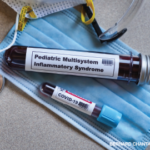Honesty & Trust
For me, this story highlights how our public health leadership has failed us. It is easy to ignore something when we discuss it in concepts too large to grasp. Then, the conversation devolves into assertions over individual rights, attributable mortality and backyard re-analysis of studies presented on CNN. But who among us would not have done everything in our power to keep Hannah and Joe with their parents for another year?
I’ve spent a lot of time thinking about what we could have done better with regard to communicating with the public at the start of the pandemic. I think it comes down to two simple concepts: honesty and trust.
I think about the initial message promulgated by Anthony Fauci, director of the National Institute of Allergy and Infectious Diseases and hero to many, who initially told us we didn’t need to wear masks. He had a reason; he was concerned the public might snap up all of the medical masks, leaving physicians in the lurch. But that’s not what he said.
In a March 2020 interview with 60 Minutes, Dr. Fauci said, “Right now, in the United States, people should not be walking around with masks. … There’s no reason to be walking around with a mask … . When you’re in the middle of an outbreak, wearing a mask might make people feel a little bit better, and it might even block a droplet, but it’s not providing the perfect protection that people think it is.”8
At some point, the guidance changed. Availability of masks was no longer an issue, and we realized that masks may not protect you, but they may prevent you from transmitting SARS-CoV-2 to others. Now, everyone was supposed to wear a mask. The problem was, because we never clearly explained why we were telling everyone not to wear masks, we struggled to explain, clearly and compellingly, why we had changed our minds.
I take this as a sign that messaging is dead. In politics, messaging refers to the development of a cohesive campaign strategy and core message to try to influence behavior. I think this might have worked in the days when the only sources of information were network news and the local paper. Now that people can choose from almost unlimited news sources (of varying quality), messaging is becoming impossible. Instead, public health experts should just commit to telling people the truth, warts and all. That way, when more data emerge and our interpretation evolves, it doesn’t sound like we have arbitrarily changed our minds, as it did with the messaging about masks. Medicine is hard. Science is hard. All opinions are not equally valid. Perhaps we should be less shy about admitting those truths.
Even more important, we have to rebuild public trust in our public health institutions. When I consent a patient for a clinical trial, I take great efforts to ensure that I have obtained informed consent. That said, I know for most of my patients, the ritual is almost meaningless. They are participating in the consent process, but the real reason they are signing the form is because they trust my judgment, and they trust me.
Our public health institutions have to have the same relationship with the public. The public has to be able to trust what public health institutions tell us and not be worried that their words may be hiding some deeper agenda or policy goal. Only by establishing this level of trust will we be ready for the next pandemic.



